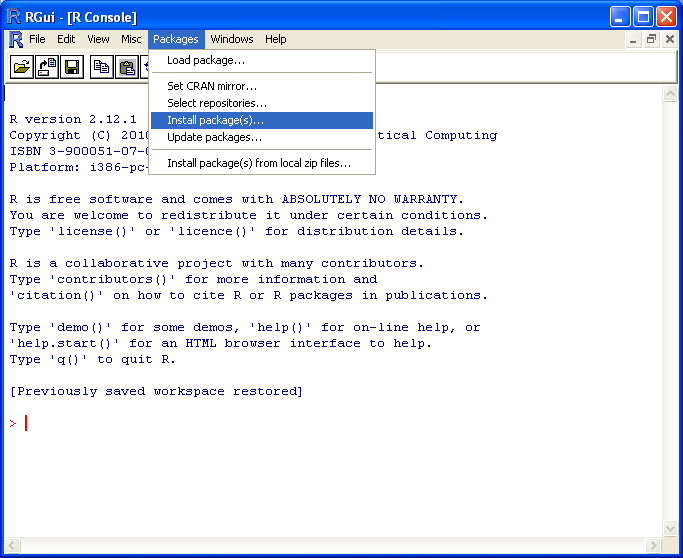


(Opens in a new tab) PDF on the Comprehensive R Archive Network website. The value labels are retained but original numerical values are replaced by index numbers 1, 2. However, when this is done, the variables of the item type are transformed into the type factor. The data can also be transformed into a more commonly used type data frame with the command df <- as.ame(ds). Numerical values can be saved as a separate variable by using the command q1 <- as.numeric(ds$$q1). Similarly, the command codebook(ds) displays the frequency tables of all variables. Numerical values corresponding to value labels can be checked with the command codebook(ds$$q1), which displays the frequencies of variable q1. This includes outdated and archived packages as well.

Specific package versions from CRAN or other CRAN-like repositories via installversion. For the example above, if the default Pyrus installation is in /usr/local/lib/pear, all files. They need a system subversion installation. php pyrus.phar install -r /home/myuser/package PackageName. Packages in subversion repositories via installsvn. Remote package archive files via installurl. In RStudio, you can set the mirror by choosing Tools. The type of individual variables in the data is item, which contains both the values and value labels of a variable. Local directories or package archive files via installlocal. Pick one thats close to your location, and R will connect to that server to download the package files. This command creates an object ds, whose type is data set.
#R install package from file portable#
Īfter loading memisc, SPSS Portable file can be opened by entering the command ds <- as.t(('D:/data.por')). If desired, the installation directory can also be manually chosen by invoking the command install.packages('memisc', lib='D:/R_lib') ,Īnd loaded for use with the command library('memisc', lib.loc='D:/R_lib'). In order to open portable files (*.por), you need an R package memisc, which can be installed, for instance, from the RGui menu Packages → Install Package(s) or by entering the following command on the command line of R:Īfter installation, the package is loaded into the R session by using the command library('memisc'). 'D:/R_lib') may need to be changed to match the setup on your computer. This guide describes how a quantitative data file downloaded from FSD’s Aila Data Service is opened in R. (Opens in a new tab) is a free software environment designed for statistical computing and graphics.


 0 kommentar(er)
0 kommentar(er)
